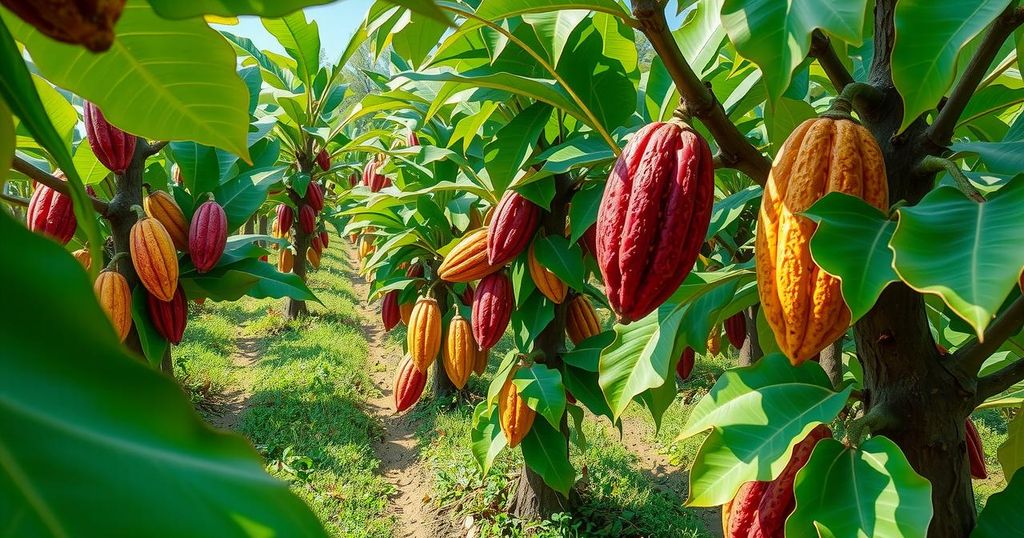Ghana’s Cocoa Crisis Demands Structural Reforms for Future Sustainability
Ghana’s cocoa crisis necessitates substantial reforms as the country faces a potential loss of $1.3 billion. Farmers continue to struggle for living wages, whilst the current government pricing system fails to adapt to market conditions. Experts warn that without major structural changes, the sustainability of the cocoa industry and the associated confectionery sector could be severely threatened.
Ghana is facing a cocoa crisis that demands significant structural reforms to safeguard its future. President John Mahama recently stated that Cocobod, responsible for Ghana’s cocoa production, may incur a potential loss of $1.3 billion due to year-long contract renewals amid peak crop prices, raising serious concerns about the industry’s sustainability.
Farmers in Ghana and neighboring Ivory Coast are striving for better wages, particularly to meet living wage standards, which now seem frustratingly out of reach. The potential loss of $1.3 billion could have significantly improved regenerative agriculture initiatives and raised farmgate prices, which have lagged behind global cocoa rates.
Cocoa prices have fluctuated substantially, trading on Futures markets around $12,000 a tonne last year but easing to approximately $7,000 to $8,000 a tonne currently, still nearly three times higher than two years ago. This highlights the inadequacy of the government’s controlled pricing system, established decades ago to stabilize the market, which struggles to adapt to current market dynamics.
Despite minor pay raises resulting from pressure on government authorities, these increases have not ensured living wages for farmers. Observers warn that without a complete overhaul of the cocoa purchasing and selling methods in West Africa, the long-term viability of both the cocoa industry and the confectionery sector, which heavily depends on it, remains uncertain.
The alarming decline in Ghana’s cocoa industry necessitates immediate and comprehensive reforms. With significant potential financial losses impacting farmers’ livelihoods, there is an urgent need to adapt the cocoa pricing and management systems to reflect current market realities. Failure to implement these changes may jeopardize the future sustainability of cocoa production in the region and the broader confectionery market.
Original Source: www.confectioneryproduction.com




Post Comment